He shall strike the ruthless with the rod of his mouth,
and with the breath of his lips he shall slay the wicked.
Justice shall be the band around his waist,
and faithfulness a belt upon his hips.
Then the wolf shall be a guest of the lamb,
and the leopard shall lie down with the kid;
the calf and the young lion shall browse together,
with a little child to guide them.
The cow and the bear shall be neighbors,
together their young shall rest;
the lion shall eat hay like the ox.
The baby shall play by the cobra’s den,
and the child lay his hand on the adder’s lair.
There shall be no harm or ruin on all my holy mountain;
for the earth shall be filled with knowledge of the LORD,
as water covers the sea. (Today’s First Mass reading; Isaiah 11)
The Early Church Fathers imparted a clear vision and interpretation of the “thousand years,” according to St. John’s Revelation (20:1-6; cf. here). They believed that Christ would establish, in some new modality, His Kingdom within His saints — a fulfillment of the “Our Father”, when His Kingdom would come and “will be done on earth as it is in Heaven.” [1]Matt 10:6; cf. True Sonship
The Church Fathers also spoke of corporeal ramifications of the spiritual blessings that would proceed from this triumph, including the Kingdom’s impact on creation itself. For even now, said St. Paul…
…creation awaits with eager expectation the revelation of the children of God; for creation was made subject to futility, not of its own accord but because of the one who subjected it, in hope that creation itself would be set free from slavery to corruption and share in the glorious freedom of the children of God. We know that all creation is groaning in labor pains even until now… (Rom 8:19-22)
What children? It would seem the children of the Divine Will, who live restored in the original order, purpose and place for which we were created by God.
“All creation,” said St. Paul, “groans and labors up till now,” awaiting Christ’s redemptive efforts to restore the proper relationship between God and his creation. But Christ’s redemptive act did not of itself restore all things, it simply made the work of redemption possible, it began our redemption. Just as all men share in the disobedience of Adam, so all men must share in the obedience of Christ to the Father’s will. Redemption will be complete only when all men share his obedience… —Servant of God Fr. Walter Ciszek, He Leadeth Me (San Francisco: Ignatius Press, 1995), pp. 116-117
Thus is the full action of the original plan of the Creator delineated: a creation in which God and man, man and woman, humanity and nature are in harmony, in dialogue, in communion. This plan, upset by sin, was taken up in a more wondrous way by Christ, Who is carrying it out mysteriously but effectively in the present reality, in the expectation of bringing it to fulfillment…—POPE JOHN PAUL II, General Audience, February 14, 2001
But before this “restoration of all things in Christ“, as St. Pius X called it, both Isaiah and St. John seemingly spoke of the exact same event: a purification of the earth by Christ Himself:[2]cf. Judgement of the Living and The Last Judgments
He shall strike the ruthless with the rod of his mouth, and with the breath of his lips he shall slay the wicked. Justice shall be the band around his waist, and faithfulness a belt upon his hips. (Isaiah 11:4-5)
Compare to what St. John wrote immediately prior to the Era of Peace or “thousand years”:
Then I saw the heavens opened, and there was a white horse; its rider was called “Faithful and True.” He judges and wages war in righteousness…. Out of his mouth came a sharp sword to strike the nations. He will rule them with an iron rod, and he himself will tread out in the wine press the wine of the fury and wrath of God the almighty. He has a name written on his cloak and on his thigh, “King of kings and Lord of lords”… they [risen saints] will reign with him for [the] thousand years… The rest of the dead did not come to life until the thousand years were over. (Rev 19:11, 15-16; Rev 20:6, 5)
After comes The Resurrection of the Church, the Triumph of the Immaculate Heart and the Kingdom of the Divine Will, what the Church Fathers called the “seventh day” — a temporal “period of peace” before the final and eternal “eighth day.”[3]cf. The Thousand Years and The Coming Sabbath Rest And this can’t help but have an impact on creation. How?
Read Creation Reborn at The Now Word.
—Mark Mallett is the author of The Now Word, The Final Confrontation, and a co-founder of Countdown to the Kingdom
Footnotes
| ↑1 | Matt 10:6; cf. True Sonship |
|---|---|
| ↑2 | cf. Judgement of the Living and The Last Judgments |
| ↑3 | cf. The Thousand Years and The Coming Sabbath Rest |

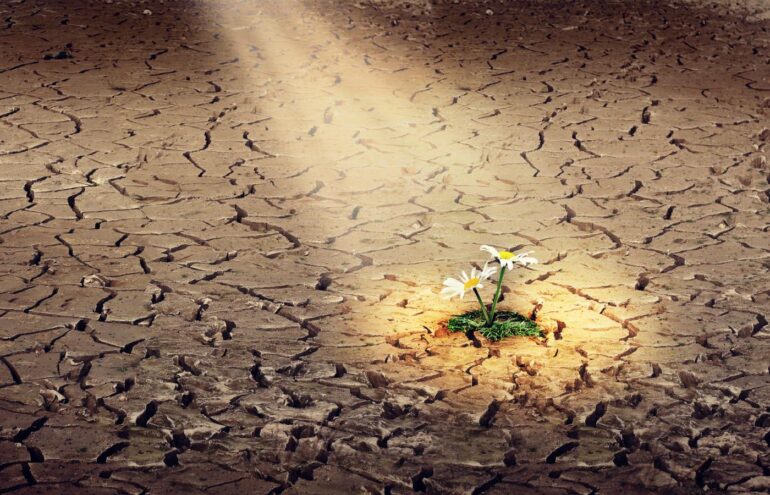

 Alicja Lenczewska
Alicja Lenczewska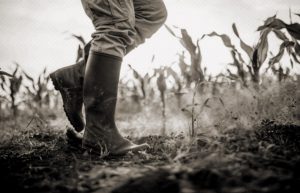
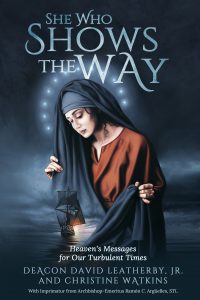
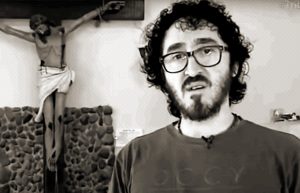
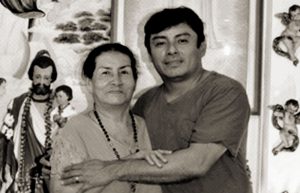
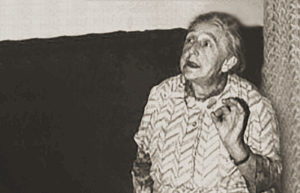 Elizabeth Kindelmann
Elizabeth Kindelmann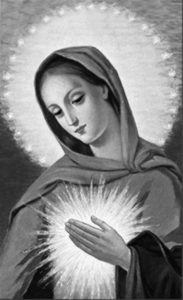 Through what became The Spiritual Diary, Jesus and Mary taught Elizabeth, and they continue to instruct the faithful in the divine art of suffering for the salvation of souls. Tasks are assigned for each day of the week, which involve prayer, fasting, and night vigils, with beautiful promises attached to them, laced with special graces for priests and the souls in purgatory. In their messages, Jesus and Mary say that The Flame of Love of the Immaculate Heart of Mary is the greatest grace given to mankind since the Incarnation. And in the not-so-distant future, her flame will engulf the entire world.
Through what became The Spiritual Diary, Jesus and Mary taught Elizabeth, and they continue to instruct the faithful in the divine art of suffering for the salvation of souls. Tasks are assigned for each day of the week, which involve prayer, fasting, and night vigils, with beautiful promises attached to them, laced with special graces for priests and the souls in purgatory. In their messages, Jesus and Mary say that The Flame of Love of the Immaculate Heart of Mary is the greatest grace given to mankind since the Incarnation. And in the not-so-distant future, her flame will engulf the entire world.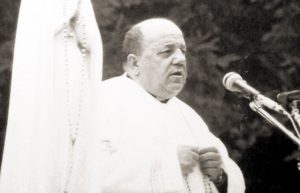 Father Stefano Gobbi
Father Stefano Gobbi Why Gisella Cardia?
Why Gisella Cardia?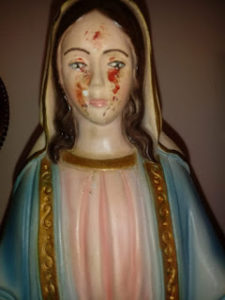 Thirdly, the messages have frequently been accompanied by visible phenomena, photographic evidence found in In Cammino con Maria, which cannot be the fruit of subjective imagination, notably the presence of the stigmata on Giselle’s body and and the appearance of crosses or religious texts in blood on Gisella’s arms. See the pictures taken from her apparition website
Thirdly, the messages have frequently been accompanied by visible phenomena, photographic evidence found in In Cammino con Maria, which cannot be the fruit of subjective imagination, notably the presence of the stigmata on Giselle’s body and and the appearance of crosses or religious texts in blood on Gisella’s arms. See the pictures taken from her apparition website 
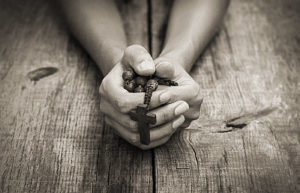 Jennifer
Jennifer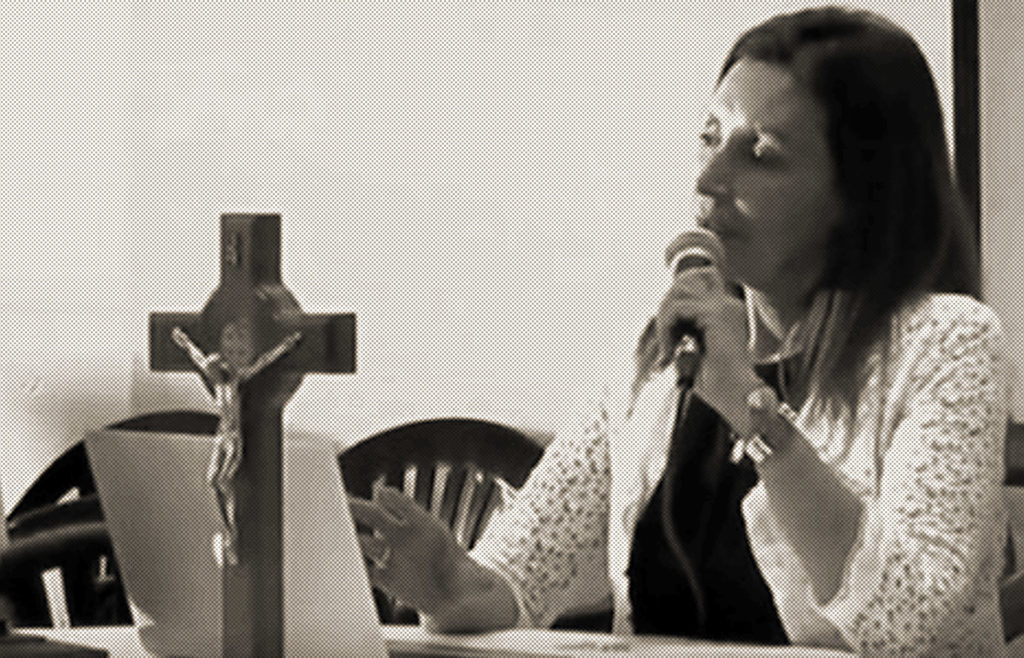
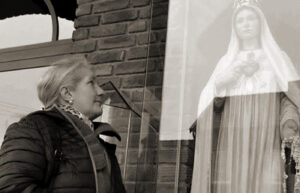 Why Manuela Strack?
Why Manuela Strack?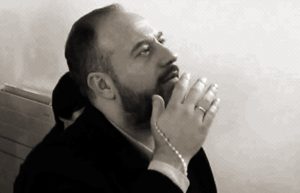
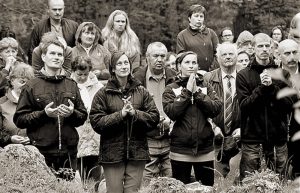
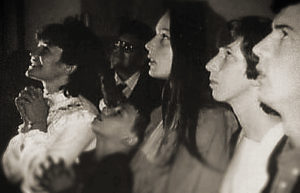 Why the Visionaries of Our Lady of Medjugorje?
Why the Visionaries of Our Lady of Medjugorje?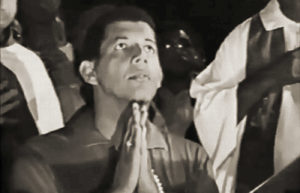 Why Pedro Regis?
Why Pedro Regis?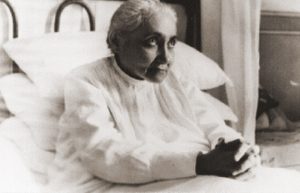 Why the Servant of God Luisa Piccarreta?
Why the Servant of God Luisa Piccarreta? of the saints. It wasn’t until she became a “Daughter of Mary” that the nightmares finally ceased at the age of eleven. In the following year, Jesus began to speak interiorly to her especially after receiving Holy Communion. When she was thirteen, He appeared to her in a vision that she witnessed from the balcony of her home. There, in the street below, she saw a crowd and armed soldiers leading three prisoners; she recognized Jesus as one of them. When He arrived beneath her balcony, He raised his head and cried out: “Soul, help Me!” Deeply moved, Luisa offered herself from that day on as a victim soul in expiation for the sins of mankind.
of the saints. It wasn’t until she became a “Daughter of Mary” that the nightmares finally ceased at the age of eleven. In the following year, Jesus began to speak interiorly to her especially after receiving Holy Communion. When she was thirteen, He appeared to her in a vision that she witnessed from the balcony of her home. There, in the street below, she saw a crowd and armed soldiers leading three prisoners; she recognized Jesus as one of them. When He arrived beneath her balcony, He raised his head and cried out: “Soul, help Me!” Deeply moved, Luisa offered herself from that day on as a victim soul in expiation for the sins of mankind. immobile, rigid-like state that appeared almost as if she were dead. It was only when a priest made the sign of the Cross over her body that Luisa regained her faculties. This remarkable mystical state persisted until her death in 1947—followed by a funeral that was no little affair. During that period in her life, she suffered no physical illness (until she succumbed to pneumonia at the end) and she never experienced bedsores, despite being confined to her little bed for sixty-four years.
immobile, rigid-like state that appeared almost as if she were dead. It was only when a priest made the sign of the Cross over her body that Luisa regained her faculties. This remarkable mystical state persisted until her death in 1947—followed by a funeral that was no little affair. During that period in her life, she suffered no physical illness (until she succumbed to pneumonia at the end) and she never experienced bedsores, despite being confined to her little bed for sixty-four years.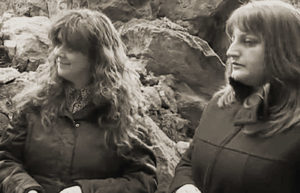 Why Simona and Angela?
Why Simona and Angela?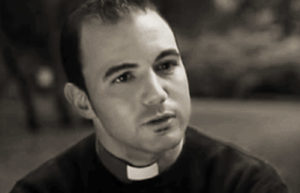
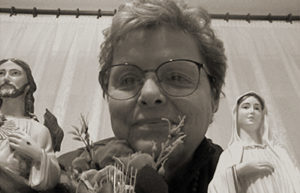 Valeria Copponi
Valeria Copponi